Search Results
Showing results 1 to 20 of 75
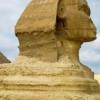
Egyptian Measuring
Source Institutions
In this activity, learners compare the ancient Egyptian system of measurement, which was based on body lengths, to the customary and metric systems used today.
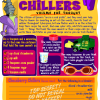
Chocoberry Chillers: Volume for Thought
Source Institutions
In this Cyberchase activity, have fun measuring volumes and enjoy a delicious shake.
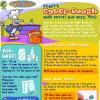
Digit's Cyber-Dough
Source Institutions
In this fun hands-on activity, learners whip up a batch of cyber-dough (play dough) using math for measurements.
Shady Snakes
Source Institutions
In this activity, learners make pretend snakes and use them to explore estimation and measurement. Learners roll out clay snakes and estimate and measure their lengths and diameters.
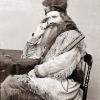
Mountain Man Measurement Rendezvous
Source Institutions
In this math lesson, learners participate in several activities where they apply measurement skills.
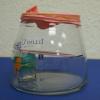
Design and Build a Barometer
Source Institutions
In this activity, learners make a barometer, an instrument to measure change in air pressure.
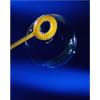
Measurement: Bubble Mania
Source Institutions
In this math lesson, learners practice measurement skills as they examine a soap bubble print. Learners follow a recipe to make a soap bubble solution.

Measuring Wind Speed
Source Institutions
In this indoor and/or outdoor activity, learners make an anemometer (an instrument to measure wind speed) out of a protractor, a ping pong ball and a length of thread or fishing line.
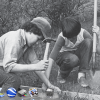
Trail Construction
Source Institutions
In this highly physical outdoor activity, learners construct and compare experimental trail sections to select the best trail-construction technique for their site.
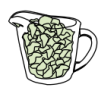
Serving Sizes
Source Institutions
In this nutrition and estimation activity (page 12 of PDF), learners estimate serving sizes of different foods and compare their estimates to serving size information provided on nutrition food labels
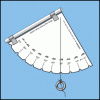
Making a Simple Astrolabe
Source Institutions
In this activity, learners make an astrolabe, a device used for measuring altitude, including the height of objects in the sky.
Build a Bridge
Source Institutions
In this activity, learners use recycled materials to build a bridge that holds as many potatoes as possible. They investigate weight, height, strength, and measurement as they seek design solutions.
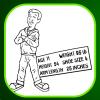
By the Numbers
Source Institutions
Learners describe objects in a room using only numbers and shapes. They can measure the object (like a desk) and make a list of facts about it (e.g.
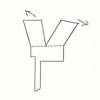
Statistics: Whirlybirds
Source Institutions
In this math lesson, learners measure, predict and determine the frequency of an event as it relates to how close Whirlybirds land to a target.
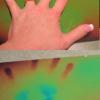
Try Your Hand at Nano
Source Institutions
This lesson focuses on two simple activities that younger learners can do to gain an appreciation of nanotechnology. First, learners measure their hands in nanometers.

Launch Altitude Tracker
Source Institutions
In this activity, learners construct hand-held altitude trackers. The device is a sighting tube with a marked water level that permits measurement of the inclination of the tube.
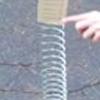
Spring Scale Engineering
Source Institutions
In this activity, learners explore how spring scales work and how they are used for non-exact weight measurement.
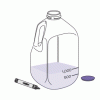
Lungometer
Source Institutions
In this environmental health activity, learners investigate their own vital lung capacities.

Globe at Night
Source Institutions
In this international citizen science activity, learners measure their night sky brightness and submit their observations into an online database.
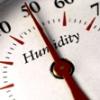
Making Sense of Sensors
Source Institutions
In this activity, learners explore sensors and focus specifically on how to measure humidity using a sensor.
